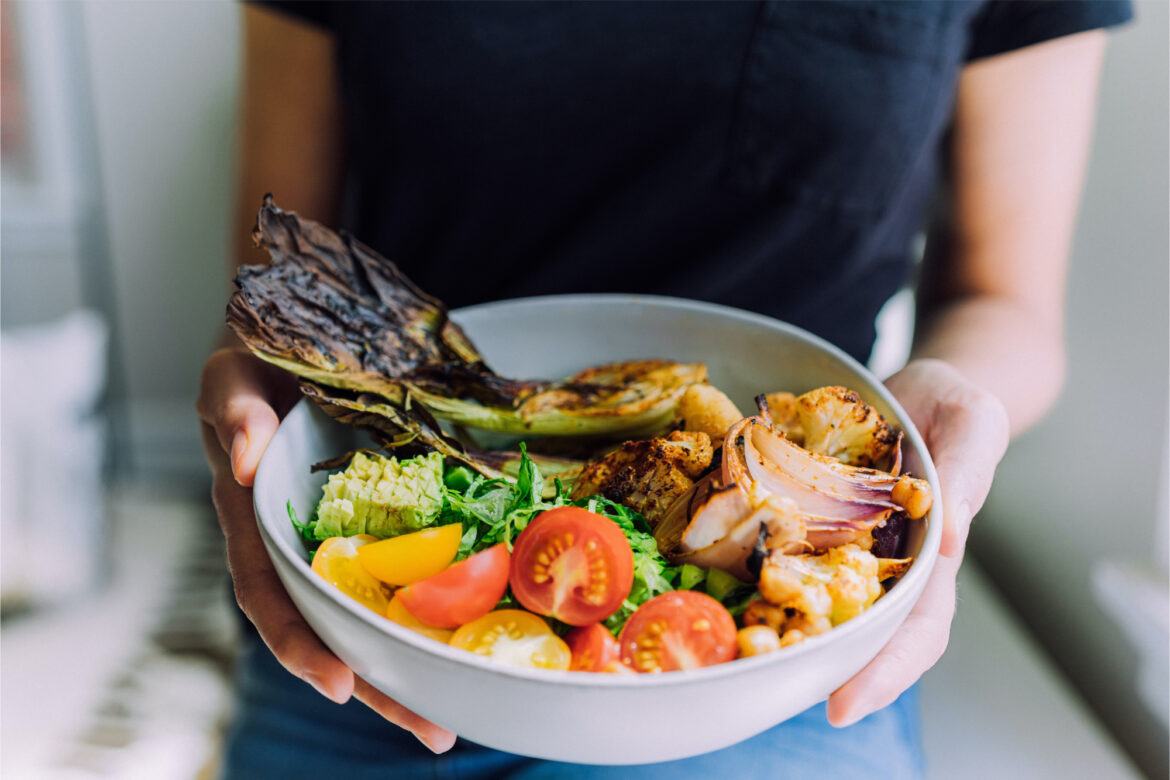A roundup of food policy topics
What’s Hot: Plant-based Diet and Lifestyle Medicine Expansion in Planning at NYC Hospitals
Mayor Eric Adams announced a comprehensive expansion of lifestyle medicine programs taking place at NYC Health + Hospitals. This expansion will provide team-based support for healthy lifestyle changes such as plant-based diets for patients with chronic conditions including type 2 diabetes, heart disease, obesity, and/or hypertension.
The NYC Health + Hospitals Plant-Based Lifestyle Medicine Program focuses on six aspects of lifestyle change, including a healthy plant-based diet, physical activity, stress reduction, sleep health, social connections, and avoidance of risky substances such as tobacco. Eligible patients are connected to plant-based doctors, registered dietitians, and health coaches in order to work on personalized plans.
Available at NYC Health + Hospitals Bellevue since 2019, the program will be expanded to be available at the following additional NYC Health + Hospitals: Elmhurst, Jacobi, Kings County, Lincoln, Woodhull, and Gotham Health Vanderbilt. The program expansion will be implemented over the coming year.
Food Policy Watchdog: 15-Minute Grocery Delivery May Become Illegal Under New Bill
New York City legislators are taking action against the 15-minute grocery delivery services introduced by such startups as Fridge No More, Buyk, Jokr, Getir, and Gorillas that have been popping up across the City and offering discounts on groceries and toiletries, especially to new customers. Earlier this month, the New York Post reported that a new bill to be introduced in the New York City Council would bar these quick-delivery grocery apps from advertising 15-minute delivery times after several reports of accidents and fatalities linked to electronic bikes in 2020.
The forthcoming legislation introduced by Councilman Christopher Marte, who represents downtown Manhattan neighborhoods including the Lower East Side, Chinatown, and the Financial District, is intended to minimize incentives for delivery workers to break traffic laws and put themselves as well as pedestrians in danger.
Quote of the Month:
“People tell me all the time that they tried to apply on day one [of the funding opening], and it immediately ran out of money before they could get into it… These are not just big restaurants. These are the tiny little coffee shops and bodegas.” – Representative Carolyn Maloney, to Crain’s New York Business
In New York City, and nationwide, restaurants continue to struggle during the COVID-19 pandemic and the related increased financial stress that is leading restaurants towards danger of closing down.
Rep. Maloney, who represents Manhattan’s east side, Queens, and Roosevelt Island, is working alongside other representatives to pass federal bills that would provide billions of dollars in new relief to the restaurant industry as well as business interruption insurance, and would rework the Paycheck Protection Program in order to extend its timeline.
The Low-Revenue Recipient Paycheck Protection Program Relief Act, would not require new federal spending. Rather, it would shift the coverage period of the PPP loan by providing alternative periods for loan forgiveness to ensure that small businesses do not have to pay back the funds to banks before they are able to use them.
Fact Check: How Much Does Meat and Dairy Impact Climate?
Earlier this month, research published in PLOS Climate reported that if all meat and dairy production ended and over the next 15 years the global food system became entirely plant-based, greenhouse gas emissions would be reduced enough to effectively cancel out emissions from all other economic sectors over the next 30 to 50 years.
The production of animal-based foods is a well-known contributor to greenhouse gas emissions across the globe. According to the Food and Agriculture Organization (FAO) of the United Nations, while a reduction in those emissions can be achieved with increased agricultural efficiency, reduction in food waste, minimizing excess consumption, and reducing the emission intensity of livestock production, the total impact of these measures combined would not be be as great i as a global transition to a plant-based diet.
The study results include numbers that are hypothetical and unrealistic; as noted in the study, however, the Intergovernmental Panel on Climate Change (IPCC) notes that all potential solutions to the climate crisis are likely to require some sort of large-scale change to the global diet.
It should be noted that the authors of the study do have a vested financial interest in the matter. Patrick Brown is the founder and CEO of Impossible Foods, and Michael Eisen is an advisor for the company. Both are shareholders in the company and would benefit financially from reduction of animal agriculture. However, this is a powerful reminder to encourage more plant-based choices.


